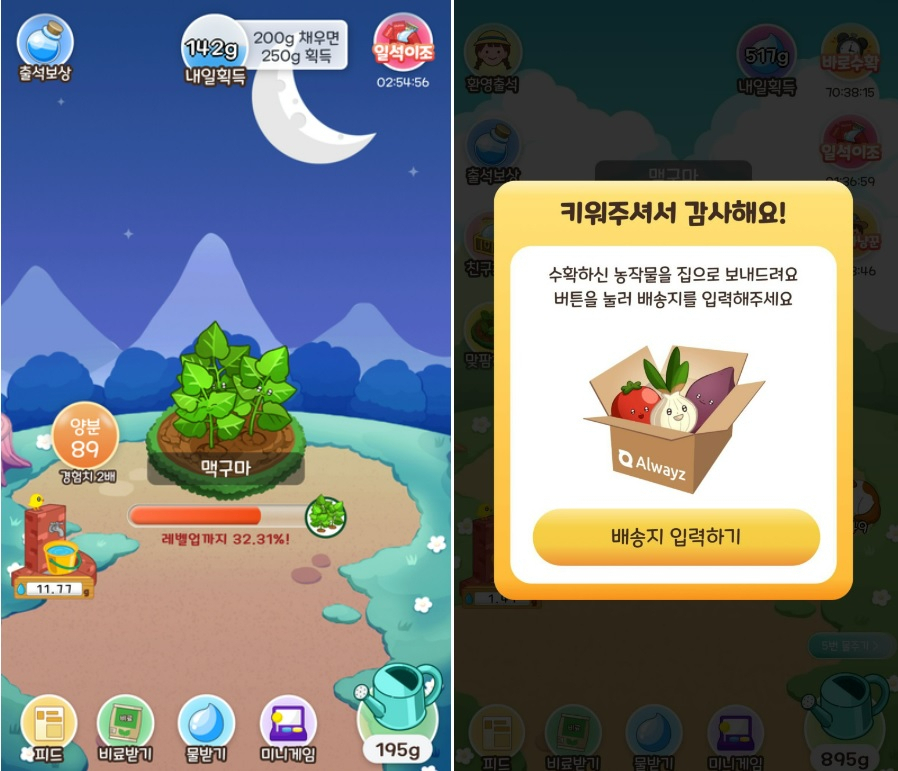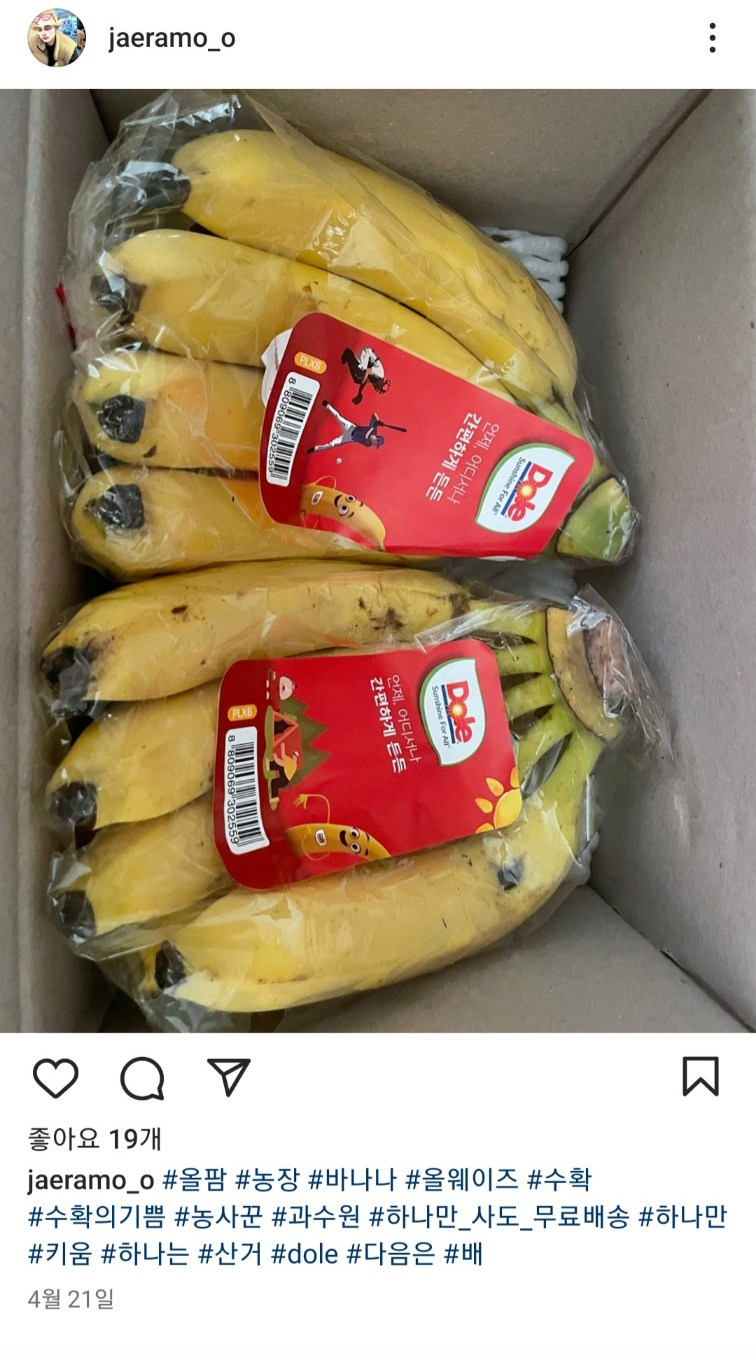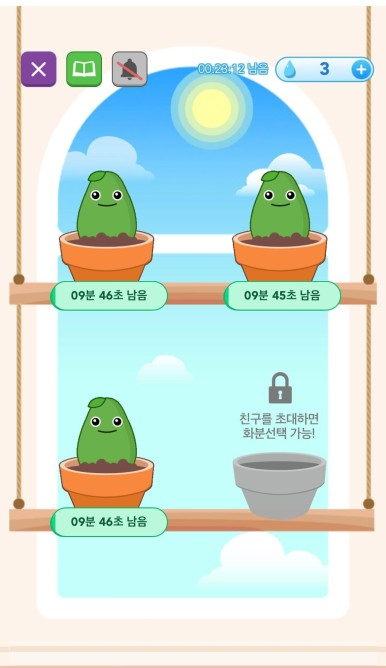Farm online, harvest offline: Virtual farming games attract inflation-weary consumers
How Koreans in their 20s and 30s get real produce by playing mobile games
By Jung Min-kyungPublished : Nov. 7, 2023 - 13:06

Home farming is gaining popularity as inflation continues to drive up the prices of produced goods including eggs and vegetables. Recently, the trend has recently taken an interesting turn, with local e-commerce platforms launching mobile farming games that bear real fruit in the physical world.
Lee Jae-ram, a 33-year-old office worker in Seoul, recently received his "harvest" of bananas in a package via mail, the fruit of his farming efforts in the mobile game, Al-Farm.
Al-Farm is a game that can be played through Alwayz, a shopping app launched in 2021 by Seoul-based startup Levit. Players can farm their own digital vegetables and fruits by purchasing or earning items like fertilizers and water. The items can be also obtained by playing and winning mini games or inviting friends to join the Alwayz app. If a crop bears fruit or becomes fully grown, players can receive the real version of what it produces via the mail.
“There’s the joy of seeing your vegetable or fruit that you’ve spent hours growing come to life,” Lee told The Korea Herald on Nov. 3.

“I earned one bunch of bananas on Al-Farm and bought another on the Alwayz app. I was very satisfied with the overall condition and freshness of the banana I received,” he added.
Besides bananas, Al-Farm players can also virtually grow sweet potatoes, potatoes, eggs, cherry tomatoes, lemons and more.
Alwayz has successfully drawn in more customers by incorporating gamification into online shopping. The app has garnered 7 million members in the 21 months since its launch in September 2021, with its operator citing Al-Farm as a major catalyst behind its fast growth.
E-commerce juggernaut Kurly jumped on the bandwagon by launching its own farming game, “My Kurly Farm,” tied to its main grocery app in August this year.
The game is similar to Al-Farm in the way that it can be accessed through the Market Kurly app. Players get two digital pots in which they can plant one of four vegetables: cherry tomatoes, cucumbers, onions and avocadoes. It takes an average of 20 minutes to farm a single vegetable virtually.
Players then can exchange a certain number of mobile vegetables for a real one. The vegetables can be converted into reward points that can be used to purchase water and instant noodles as well.
“My Kurly Farm has allowed us to gain more customers with longer app use duration,” a Kurly spokesperson said Nov. 3.
Kurly has yet to compile data that shows how the farming game is affecting its bottom line or customer base, according to the spokesperson.
No free lunch, no free fruit
Mobile farming games provide the joy of a harvest without the hassle of getting your hands dirty in the soil, but there is a catch – players often need to watch ads or are lured into shopping on affiliated apps, indicating that there's strings attached to this virtual farming experience.
For both Al-Farm and My Kurly Farm, the business model is to bring users in with the promise of free delivery of harvested produce, and then generate revenue by encouraging them to shop within the game ecosystem.

It is a clever, new way to attract inflation-weary shoppers, as the prices of agricultural, livestock and marine products increased 7.3 percent last month. Vegetable prices, in particular, jumped 13.5 percent, the biggest gain in 29 months.
“It gives you the feeling that you're investing in something amidst the growing inflation," remarked Lee Eun-hee, a professor in Inha University's Department of Consumer Science.
However, she also cautioned, "Retailers should be mindful of the advertising tactics employed in these games, designed to entice consumers into making more purchases without them fully realizing it."




















